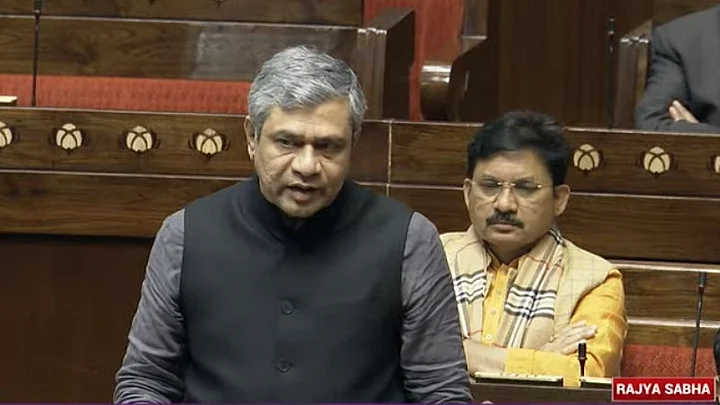Union Minister of Communication Ashwini Vaishnaw has finally spoken up about whether Over-the-Top (OTT) communication services like WhatsApp are regulated by the controversial Telecommunications Bill, 2023, that was recently passed by both Houses of Parliament.
"There is no coverage of OTT in the new telecom bill passed by the Parliament," Vaishnaw was quoted as saying by Economic Times (ET). "OTT has been regulated by the IT Act of 2000 and continues to be regulated by the IT Act," the Union minister reportedly added.
Vaishnaw's clarification comes after confusion swirled around the 'ambiguous definitions' in the Bill and its regulatory purview. The Telecom Bill faced pushback from digital rights activists who warned that it could lead to mass surveillance by the State and threaten end-to-end encryption.
Big tech players like Meta had also reportedly expressed concerned about coming under telecom-like regulation in India.
While Vaishnaw's remarks to ET may allay a few of the privacy concerns raised by activists, is it enough? Or does the wording of the law need to be changed to expressly exclude OTT services? And how do telecom companies, who've long demanded that OTT players be regulated like them, feel about the minister's clarification?
The Big If
Following the introduction of the Telecom Bill in the Winter Session of Parliament, several digital rights activists and tech policy observers pointed out that the Bill had broadly defined terms such as:
'telecommunication': According to the Bill, telecommunication means transmission, emission or reception of any messages, by wire, radio, optical or other electro-magnetic systems, whether or not such messages have been subjected to rearrangement, computation or other processes by any means in the course of their transmission, emission or reception.
'telecommunication service': The Bill defines this term as any service for telecommunication.
'message': This term is defined as any sign, signal, writing, text, image, sound, video, data stream, intelligence or information sent through telecommunication, according to the Bill.
The proposed definition of these terms were interpreted to be 'broad' and 'vague' enough to apply to online messaging platforms (WhatsApp), email, video communication platforms (Zoom), cloud services, and SaaS applications.
In fact, an earlier draft of the Telecom Bill released in 2022 had expressly included OTT services under the scope of the Bill which had led to pushback from industry stakeholders and civil rights groups.
Moneycontrol reported on Thursday, 21 December, that Meta had voiced concerns of facing regulation under the Telecom Bill in an internal email accessed by the news outlet.
But why is it important for terms such as telecommunication to be narrowly defined in the Bill?
If the Bill is read to apply to platforms such as WhatsApp, it could threaten end-to-end encryption and deal a blow to online anonymity as well.
"An inalienable feature of end-to-end encrypted platforms is that no one other than the sender and intended recipient/s can access messages in any format, including the service provider. The Bill would threaten this foundational element that enables people to communicate freely and privately, in an environment of ever-increasing surveillance and cyberattacks, and potentially even resulting in such secure services choosing to not operate in India, to the detriment of all," Access Now said in its letter addressed to the Department of Telecommunications (DoT).
"The Bill confers expansive surveillance and interception powers on the government, without meaningful independent and judicial oversight. Further, with requirements such as the one for telecommunication services to use “verifiable biometric based identification”, the Bill facilitates incursions on fundamental rights without any reasonable limitations and safeguards, against principles of necessity and proportionality."Access Now, in a letter dated 21 December
The Telecom Bill cleared both Houses of Parliament on Thursday, 21 December, amid a row over the suspension of Opposition MPs during the Winter Session 2023. The Bill is meant to repeal and replace three existing Acts, namely: the Indian Telegraph Act, 1885; the Indian Wireless Telegraphy Act, 1933; and The Telegraph Wire (Unlawful Possession) Act, 1950.
The Telecom Bill now awaits President Murmu's assent to become law.
